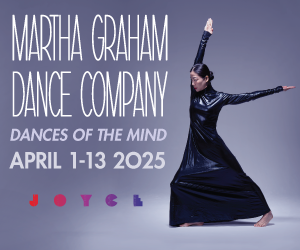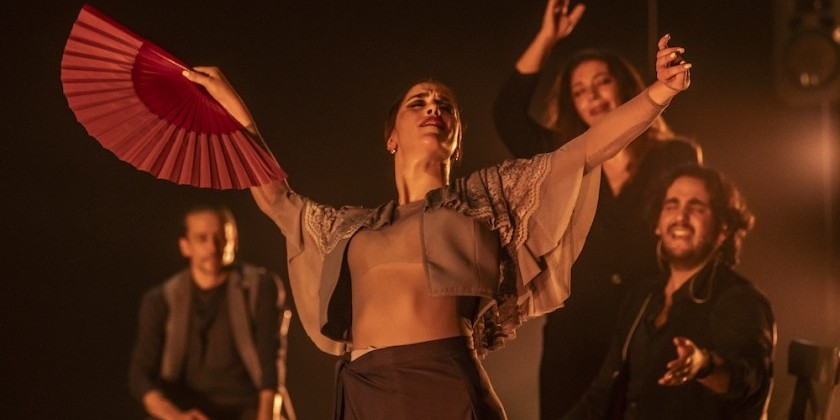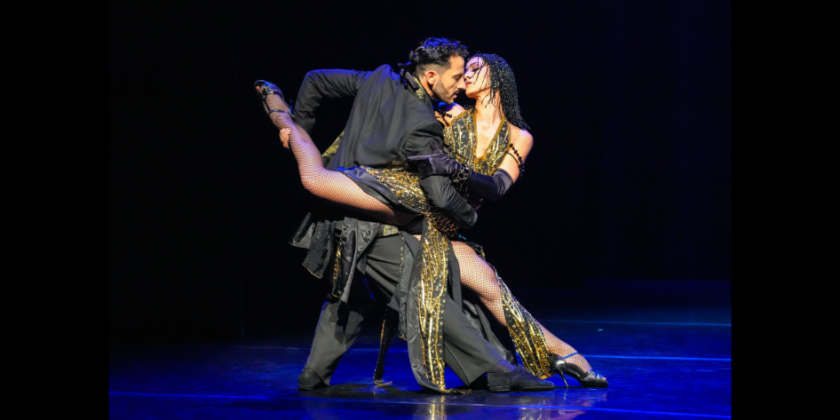IMPRESSIONS: Christopher Unpezverde Núñez in “YO OBSOLETE" at Pioneers Go East Collective’s Out-FRONT! Fest

Created & Performed by Christopher Núñez
Design by Branden Charles Wallace
Music by Alfonso “Poncho” Castro
Presented by Pioneers Go East Collective’s Out-FRONT! Fest
Venue: The LGBT Community Center
There is nothing quite like the shelter of a warm, still performance space on a cold, windy night. On this particular night, a gently persistent sense of solace guided dancemaker Christopher Unpezverde Núñez through “YO OBSOLETE,” a moving meditation on memory, pain, imagination, and healing.
Núñez has a particular penchant for decorating space and time with highly-detailed syncretic symbologies, crafted in collaboration with design artist Branden Charles Wallace and sound artist Alfonso “Poncho” Castro. Meticulously arranged performance arenas contain and express an aesthetic signature in which sacred and camp mingle amid a riot of color. Recorded and spoken narration, poetic audio description, and richly percussive soundscapes support dynamic storytelling and multimodal engagement. The result is a body of work of harmonious depth and transparency in which the personal and the collective are allowed to speak together across time and space.

Christopher Unpezverde Núñez; photo by Steven Pisano
This latest work builds on previous collaborations with Wallace and Castro, including 2022’s "The Circle or Prophetic Dream," a ritualized conjuring of universal humanity, and 2023’s “The Square: Displacement with no end,” a trance-like reflection on lineage and migration. Each of these works explores Núnez’s embodied ancestral-anthropological research, which he channels and expresses through a movement language grounded in elemental forces, breath, and somatic visualization. Continuing in this vein, “
Padding quietly into the space on pink-socked feet, Núñez begins by guiding the audience through a seated movement exercise, using breath to visualize and mobilize the solar plexus. Gentle undercurves and overcurves build to an undulating circle that activates internal and external awareness, attention, and a keen kinesthetic empathy for the dance to come.
As audience and performer settle together, music and movement arise together. Drums and curves begin their conversation, opening attention to the dancer and his surroundings: a central circle demarcated with pink tape, a rectangular perimeter of entangled pink ribbons and brightly colored toys, a pink track jacket bedecked with more toys and images. Pink: the color of happiness, the color of love, the color of Núñez’s endless spool of soft-boned circles that are at once grounded and focused, floating and free.

The artist’s increasingly labored breathing and kinetic accelerations are an apt undercurrent for his recorded narration, in which he unearths memories of violent childhood abuse and the imaginative dissociations of his young mind. He crafts and voices an alter ego, a boy inside a boy who takes his place in moments of intense trauma and pain. He wanders cemeteries, collecting toys from the graves of dead children. And he spins circles: endless, dizzying, consciousness-altering circles that can absorb, jumble, or dull the pain. From this childhood escape through spinning, the adult before us uses every part of his articulate body to trace overlapping circles in multiple planes with astonishing clarity, moving continuously for so long that when he stops the air around him ripples with echoes.
He pauses to focus on a pink remote control monster truck that will become his beloved partner for the remainder of his offering. Balanced atop his head, the truck becomes a totemic crown in his mythology of self, granting him power, agency, and freedom through belief and imagination. He morphs slowly into bold and delicate postures, charging forward with arms like wings, fingers like feathers trailing behind. Threading a long pink ribbon around the truck, he holds the ends and spins it aloft, evoking the sensation of centrifugal force experienced by a small child spun by the hands of a trusted adult. But the quiet center is not always peaceful; it can hold traumatic memories of pain, violence, unrequited desire and longing. The force that holds together the still point and the whirling periphery is not a solace, but an inevitable necessity.

As Núñez narrates a long list of desires — material and emotional, extravagant and quotidian, for himself and others— he guides his truck around the pink-ribboned perimeter of the space, pausing occasionally to play a mournful chord on a pink plastic melodica. The truck slowly gathers and accumulates all the objects in its path into a pool of gleaming pink tendrils—a nest for his desires, for his memories, for his pain and the journey of his healing to find rest.















